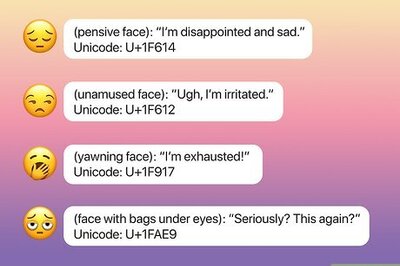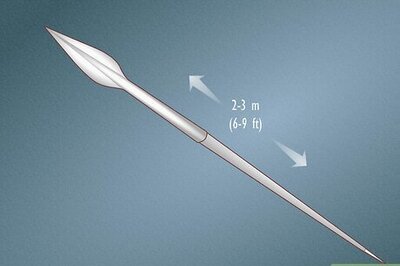
views
New Delhi: The Comptroller General of India’s (CAG) report on Rafale deal tabled in the Rajya Sabha on Wednesday reveals that both the French government and Dassault Aviation did not agree to furnish any guarantee – be it bank, sovereign or performance – in the contract signed with the Indian government in 2016.
Instead, the French government provided a ‘Letter of Comfort’ signed by its Prime Minister. “The Government of France and vendor neither agreed to furnish the Bank guarantees nor Government/Sovereign guarantee. Instead it provided a ‘Letter of Comfort’ signed by the French Prime Minister in lieu of the Bank Guarantee,” said the CAG report.
The CAG said that Dassaut’s offer to the UPA government in 2007 had included a 15 per cent bank Guarantee against advance payments, as well as five per cent each for performance guarantee and warranty.
“In the 2015 offer the French vendor did not furnish any Financial and Performance Bank Guarantees. Since about 60 per cent of advance payments were to be made to the French vendors, Ministry of Law and Justice advised that Government/Sovereign guarantee should be requested in view of the value of the proposed procurement,” the CAG report said.
But when the issue on sovereign guarantee was submitted to the Prime Minister Narendra Modi-led Cabinet Committee on Security in September 2016 for consideration, it accepted the letter of comfort by the French government, overruling the concerns put forward by the law ministry.
The French government also did not agree to receiving an escrow account as they felt, “the guarantees already provided by the Government of France were far reaching and unprecedented.”
The Inter Government Agreement (IGA) further approved that the advance payments were to be made directly to the bank accounts of French vendor Dassault that was to be opened in French government-controlled bank.
The larger criticism for the ‘Letter of Comfort’ is that in case of any breach of agreement, India would have to first settle it through arbitration directly with the French vendors.
“If the arbitration award were in favour of Indian party and the French vendor fails to honor the award (make the payment’s claim), Indian party should exhaust all available legal remedies. Only then the French Government would make these payments on behalf of the vendors,” the report stated.
However, had India signed the deal with bank guarantees or a sovereign guarantee as the UPA government had agreed, the deal would have been much more secure because, “a bank guarantee gets directly and automatically invoked in case of breach of contract by the seller,” according to the report.
BJP rebels Yashwant Sinha and Arun Shourie along with Prashant Bhushan have taken the government to court on this very count.
The attorney-general told the Supreme Court during a hearing of the case that the letter of comfort, which says that if there is any exigencies, it would be taken care of by France, is almost analogous to a letter guarantee.
However, even the law ministry did not accept this when the IGA proposal was routed through them. Experts say, that a letter of comfort is merely a moral obligation than a legal one, something an unfriendly government in future can entirely sideline.
Indian Defence Review cites examples from countries like Canada and US. In the former there are two levels of letter of comfort to ensure that signing of the second tier document means the signatory government has an intention to support the subsidiary. In contrast, US is against ‘letter of comfort’, as its legal enforceability is suspect.
Former Finance Minister P Chidambaram after the report was tabled insisted that India should have stood firm for a sovereign guarantee instead of settling for a letter of comfort.
Sovereign guarantee is a promise by the government of a state to discharge the liability of the subsidiary, or partner firm, in case of a default or failure to adhere to the terms of contract. Sovereign Guarantees are contingent liabilities of the Central and state government signatories of such a pact.




















Comments
0 comment